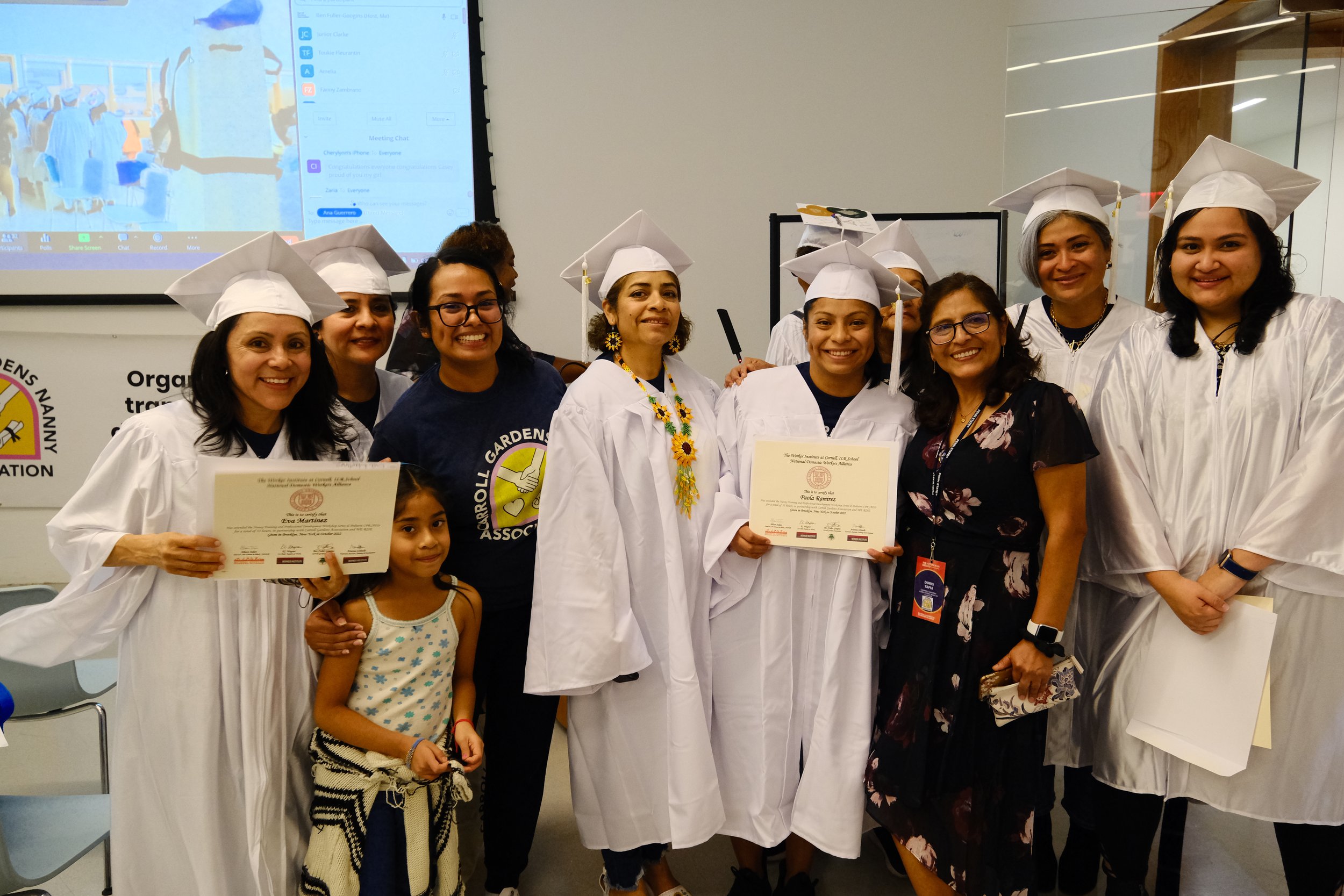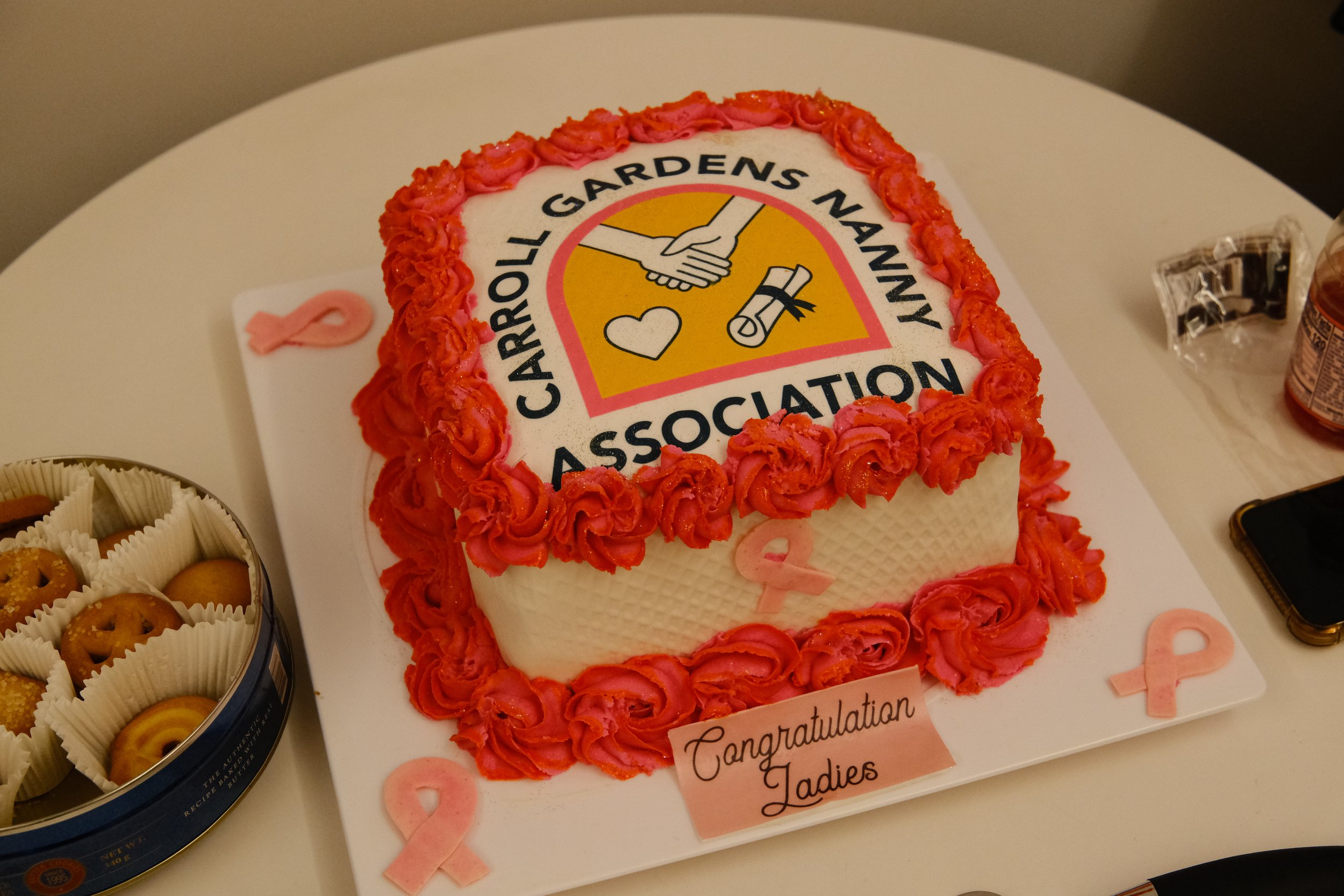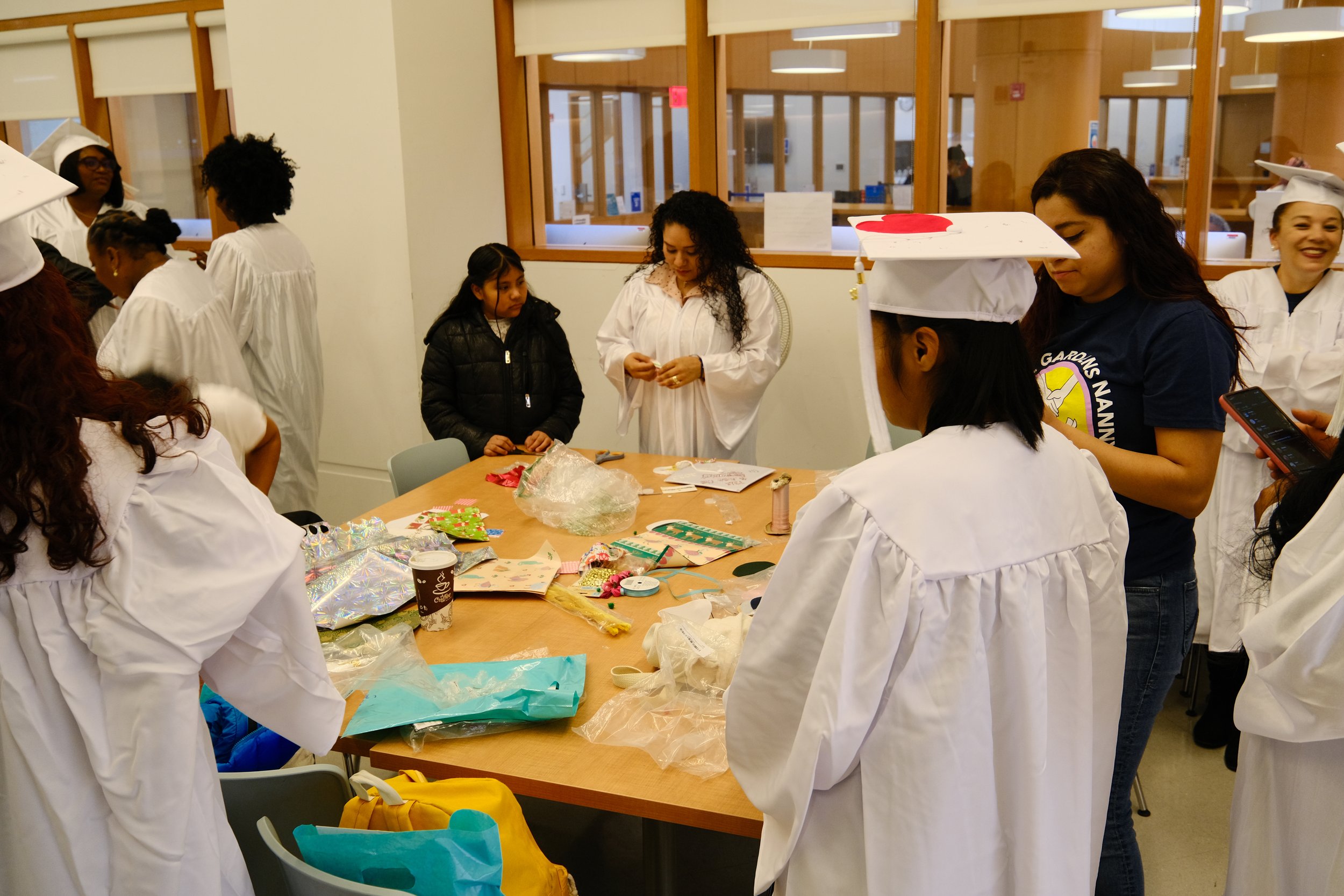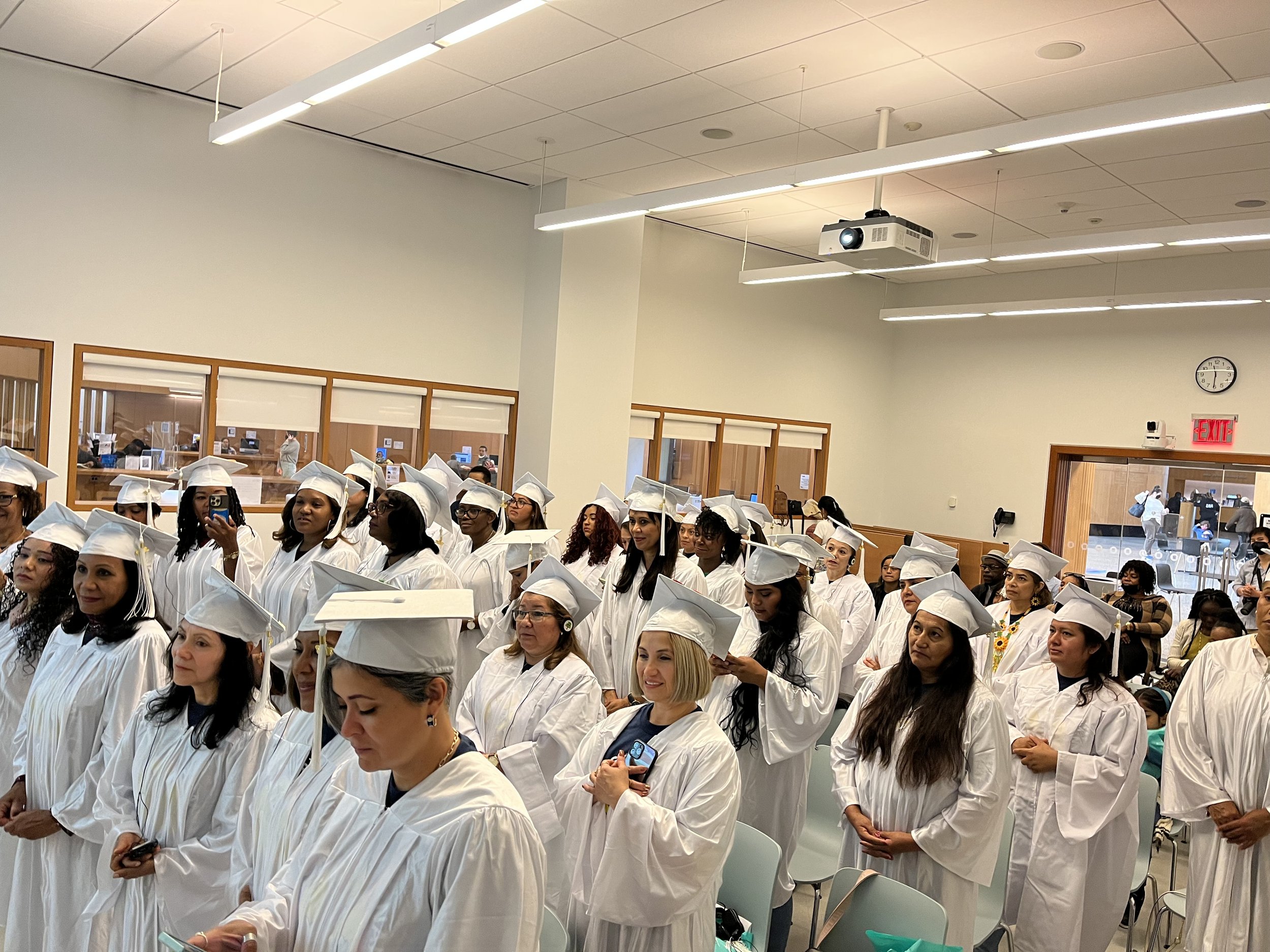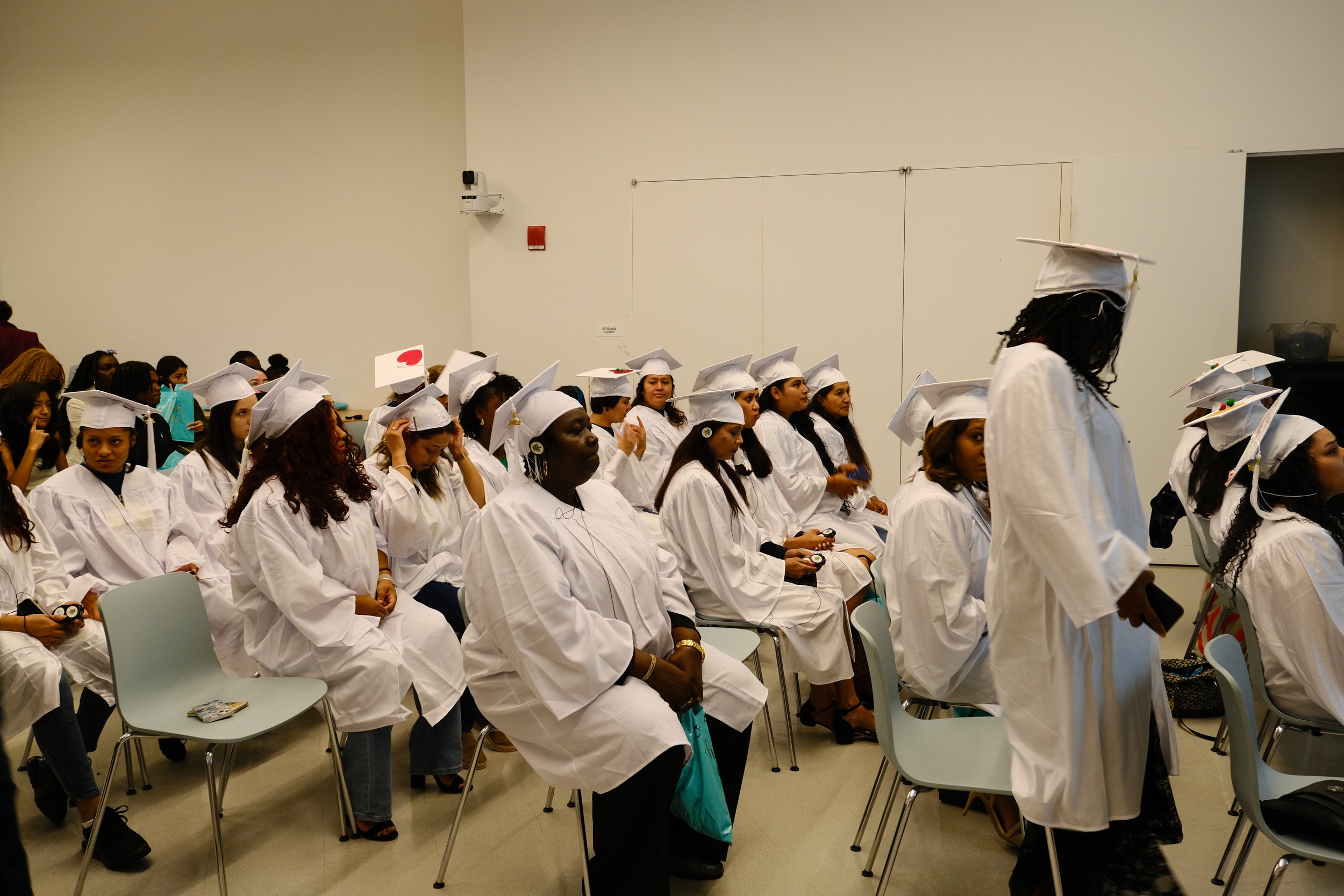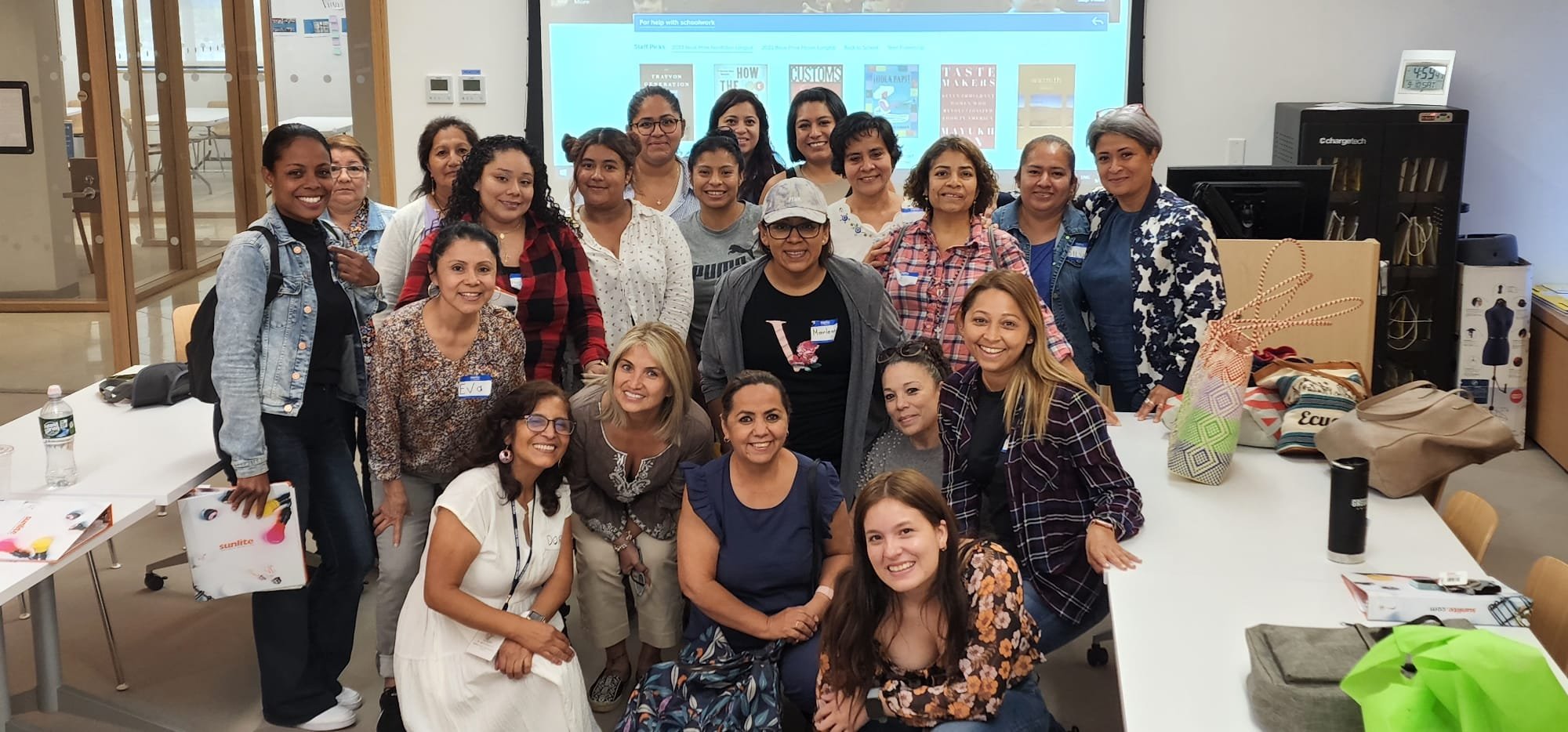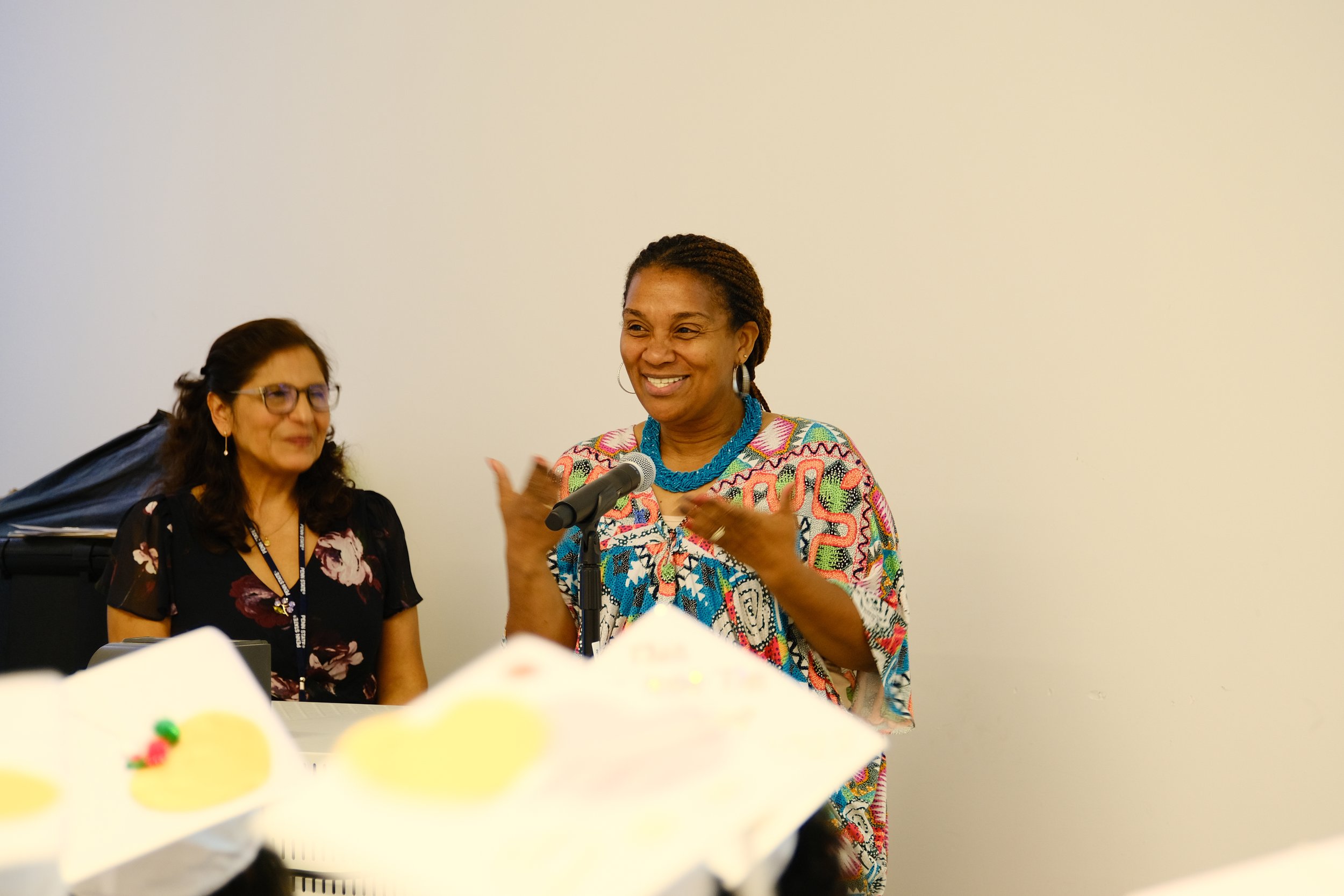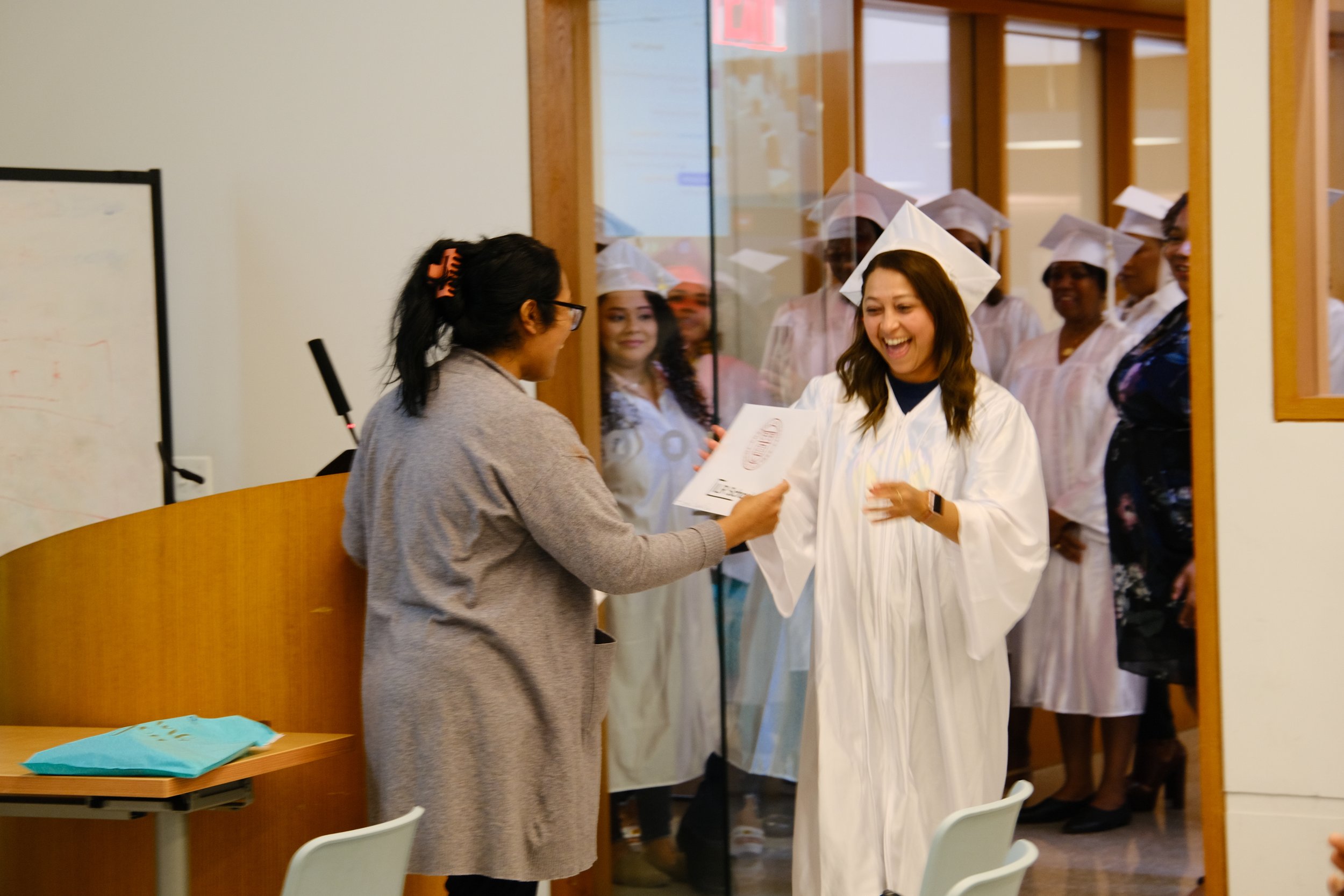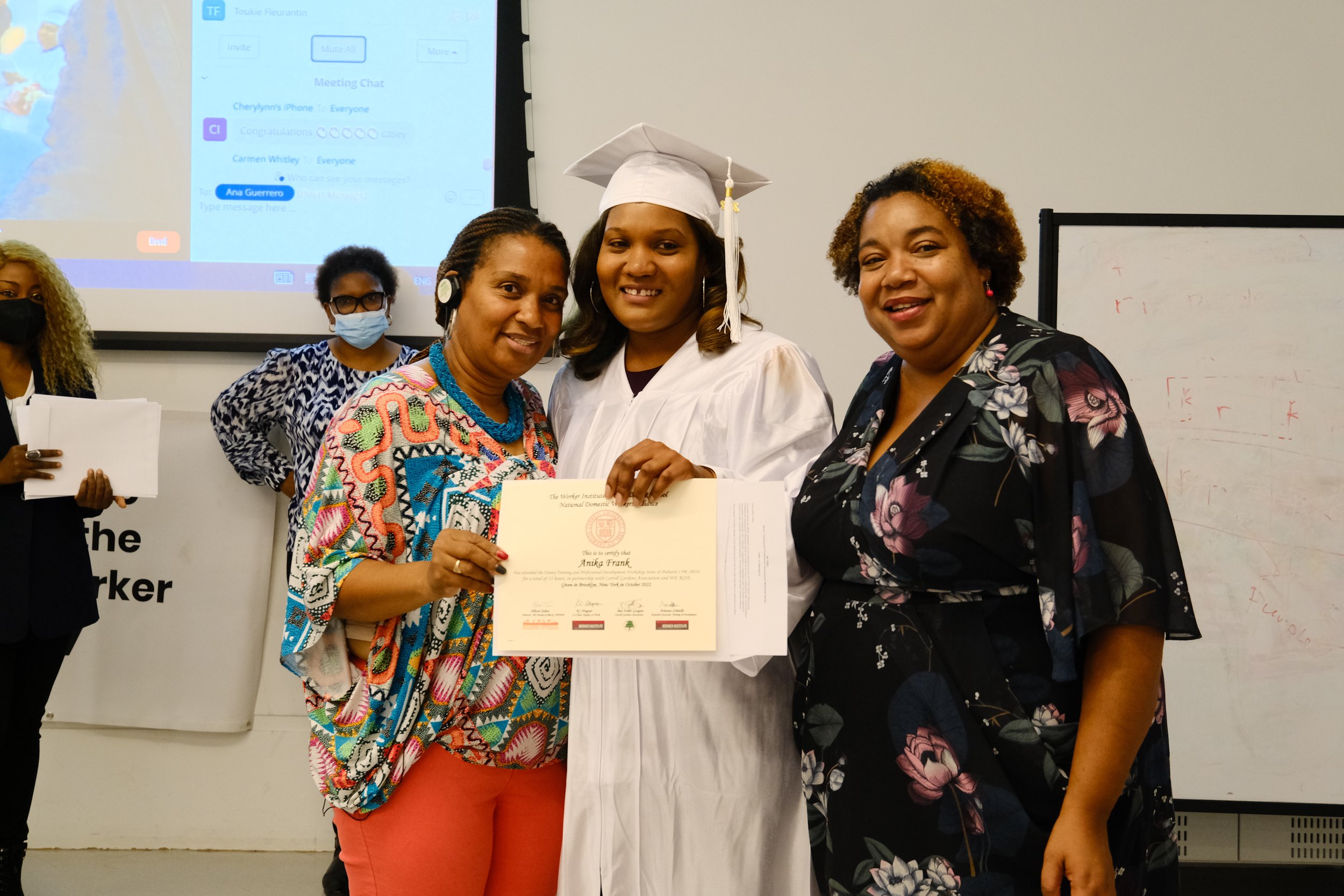Graduating 100 Domestic Workers from the We Rise Nanny Training!
Having to navigate online, hybrid, and finally, in-person training, its been a challenging year for our We Rise program. Amidst all the adaptation and challenges, this past Saturday we graduated our latest cohort of 44 domestic workers, bringing our total to 110 (over the course of three cycles each with a Spanish and English class) this year! Read below to learn more about the training program, hear testimonies from graduates, and see photos from classes and the graduation along the way!
What are the classes in the We Rise Nanny Training?
Workers Rights:
Participants learn about the basic rights that nannies or any domestic worker have under current New York labor laws and how they can implement and enforce their rights at the beginning, during, and end of their job.
Negotiations:
As domestic workers, we have the right to be valued, respected, and properly compensated. The job interview for domestic workers is a key moment that sets the tone for the rest of the domestic employment relationship. It is the first moment when a domestic worker negotiates working conditions, asserts their labor rights, and establishes standards within the workplace.
Social + Emotional Development
Participants will be able to understand how challenging behavior correlates to social-emotional development & what strategies they can use to support children’s social-emotional behavior; so they can assert this knowledge in the nanny childcare setting, and work more informatively with their clients and employers.
Child Nutrition
Basic knowledge about the composition and nutritional quality of food, nutrients, and energy balance. Also knowledge in food handling.
Communication with Families
Participants will review the key components of communication in order to strengthen the ways they communicate with families as caregivers. Participants will be introduced to the importance of assertive, empowered, and dynamic communication when working with families
Home as a Workplace
In this session participants learn how to:
Identify and protect themselves against potentially dangerous chemicals used for housekeeping, as well as create safe alternatives
Be able to name different potential disasters faced in the home workplace and create an emergency preparedness plan for the home workplace
Understand how to identify and reduce potential risk factors related to ergonomics
Preventing Sexual Harassment
Sexual harassment in the workplace is a very important issue for the nanny community, but it is a very sensitive topic to talk about. This module explains the strategies, rights, and a bit of self-defense that can be of support in the work area.
Children's Basic Health + First Aid
In this module, participants
Learn how to recognize different medical conditions in children
Share our experiences in situations where children are sick and need medical assistance
Learn about how we treat different medical conditions in children
Community Organizing
This lesson introduces participants to key concepts of community organizing. Participants also gain an understanding of how community organizing works and explore how it is an effective tool for making real improvements in the domestic worker movement.
CPR + First Aid Training
A two year certificate provided by the American Red Heart Association
Scenes from our Fall Cohort Graduation!

